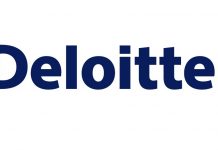The Depository Trust & Clearing Corporation (DTCC), the US post-trade financial services company providing clearing and settlement services to the financial markets, has released a white paper that calls for financial sector collaboration in developing distributed ledger technologies to “modernize, streamline and simplify the siloed design of the financial industry infrastructure and address certain limitations of the current post-trade process.”
President and CEO at DTCC, Michael Bodson, said:
The industry has a once-in-a-generation opportunity to reimagine and modernize its infrastructure to resolve long-standing operational challenges. To realize the potential of distributed ledger technology in a responsible manner and to avoid a disconnected maze of siloed solutions, the industry must work together in a coordinated fashion.
The white paper, titled “Embracing Disruption – Tapping the Potential of Distributed Ledgers to Improve the Post-Trade Landscape,” notes that today’s financial market infrastructures are often quite complex, siloed and not equipped for continuous processing. DTCC believes a secure distributed ledger, with complete and traceable transaction history, could provide important operational improvements, mitigate risk and reduce post-trade costs.
From its research and analysis, DTCC recommends exploring targeted opportunities to improve upon the existing infrastructure in certain defined areas that include master data management; asset/securities issuance and servicing; confirmed asset trades; trade/contract validation, recording and matching for the more complex asset types that currently do not have strong existent solutions; netting and clearing; collateral management; and, longer term, settlement.
The organizations however warns that distributed ledger technology is still immature and unproven, has inherent scale limitations in its current form, and lacks underlying infrastructure to cleanly integrate the technology into the existing financial market environment.
The DTCC also indicates that research efforts up to now have not been coordinated and, as a result, the industry is at risk of once again creating multiple new solutions based on different standards and with significant reconciliation challenges. The organization recommends that “central authorities” and regulators play a leading role in introducing the standards, governance and technology to support distributed ledger implementations and to “ensure that new opportunities are in the best interests of post-trade processing and consistent with long-standing goals of mitigating risk, enhancing efficiencies and driving cost efficiencies for market participants.”
Bodson added:
The current approach of many firms experimenting in private with a technology that uses consensus protocols to provide transparency could lead to a new post-trade environment with the same integration and reconciliation problems that companies face today. As an industry-owned and governed financial market utility with more than 40 years of service, DTCC is uniquely positioned to help lead the effort in exploring how distributed ledger technology can simplify or replace legacy post-trade systems.
DTCC recently made a financial investment in Digital Asset Holdings, a developer of distributed ledger technology for the financial services industry, along with ABN AMRO, Accenture, ASX Limited, BNP Paribas, Broadridge Financial Solutions, Inc., Citi, CME Ventures, Deutsche Börse Group, ICAP, J.P. Morgan, Santander InnoVentures, and The PNC Financial Services Group, Inc. Bodson will sit on the company’s Board of Directors.
In 2015, DTCC also became a member of the Linux Foundation to support the Hyperledger project, a collaborative effort to advance the Blockchain technology. Hyperledger is a platform acquired by Digital Asset in 2015 and moved to the Linux Foundation to be an open source project..







